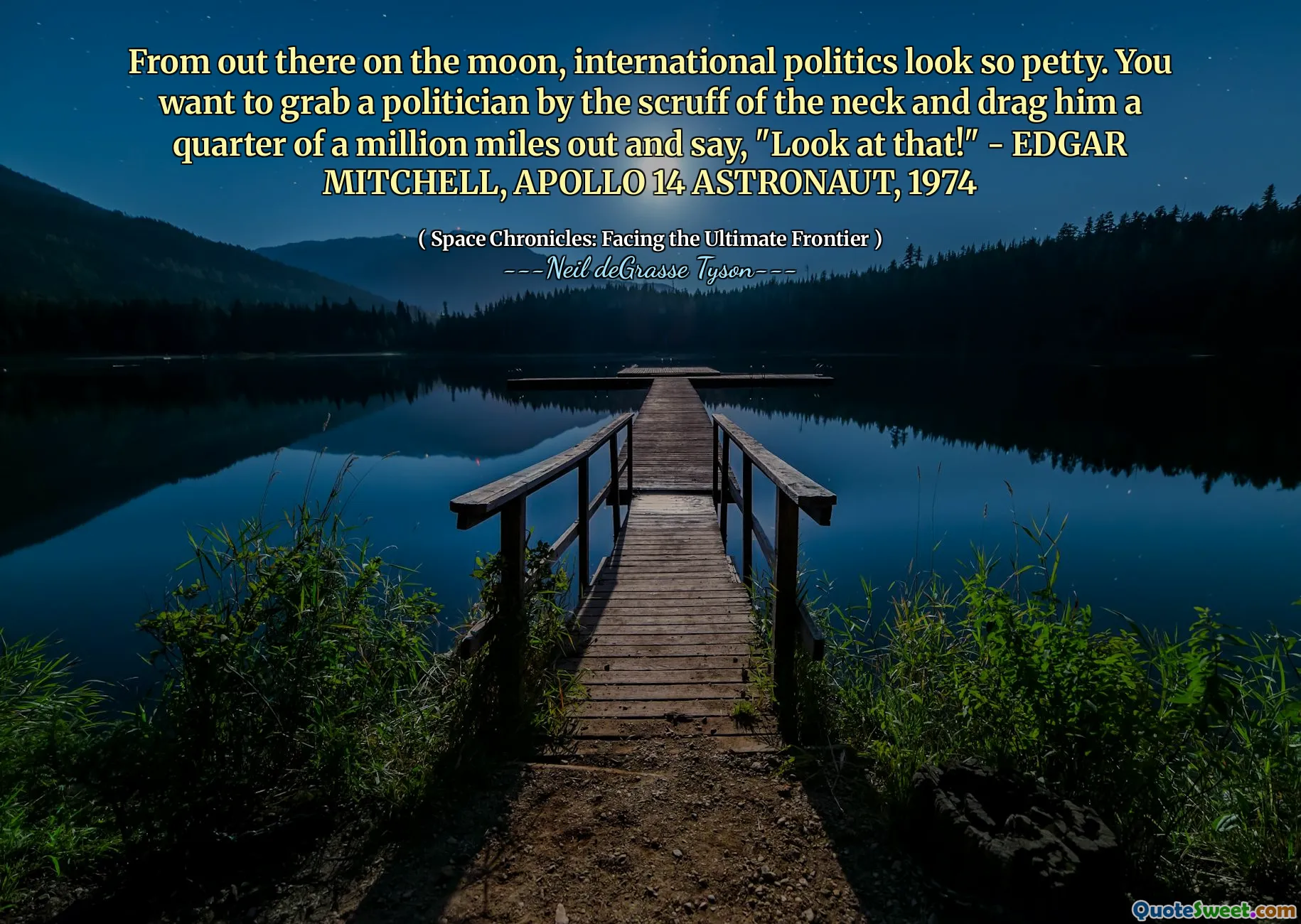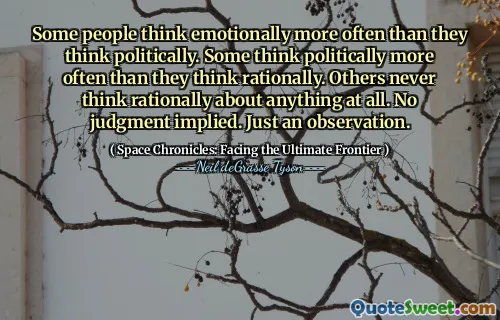
From out there on the moon, international politics look so petty. You want to grab a politician by the scruff of the neck and drag him a quarter of a million miles out and say, "Look at that!" - EDGAR MITCHELL, APOLLO 14 ASTRONAUT, 1974
This quote underscores the profound perspective that space exploration provides on human affairs. When viewing Earth from the vantage point of the moon, the seemingly insurmountable differences—political borders, conflicts, ideologies—appear insignificant against the backdrop of the entire planet. It evokes the idea that many of our earthly disputes are petty in the grand scale of the universe. Neil deGrasse Tyson, in his book 'Space Chronicles', often highlights how space visits can catalyze a sense of global unity and humility, reminding us that we all share this tiny, fragile orb. The stark contrast between Earth's vulnerability and the vastness of space encourages us to rethink priorities. Instead of war and division, perhaps our collective focus should shift toward preservation, cooperation, and curiosity. This perspective is critical because it challenges the egocentric and often divisive nature of politics, emphasizing that our conflicts are trivial when viewed from an extraterrestrial perspective. It’s an invitation to transcend petty disputes and recognize the interconnectedness of all life on Earth. The view from space makes clear that shared destiny—environment, peace, and progress—should be our priority, fostering empathy and unity. Space exploration acts as a lens that magnifies what truly matters, inspiring a more enlightened approach to handling international relations, emphasizing cooperation over conflict. It reminds us that no matter the disagreements here, from the moon, all nations look small, and our differences often diminish when seen from afar.







